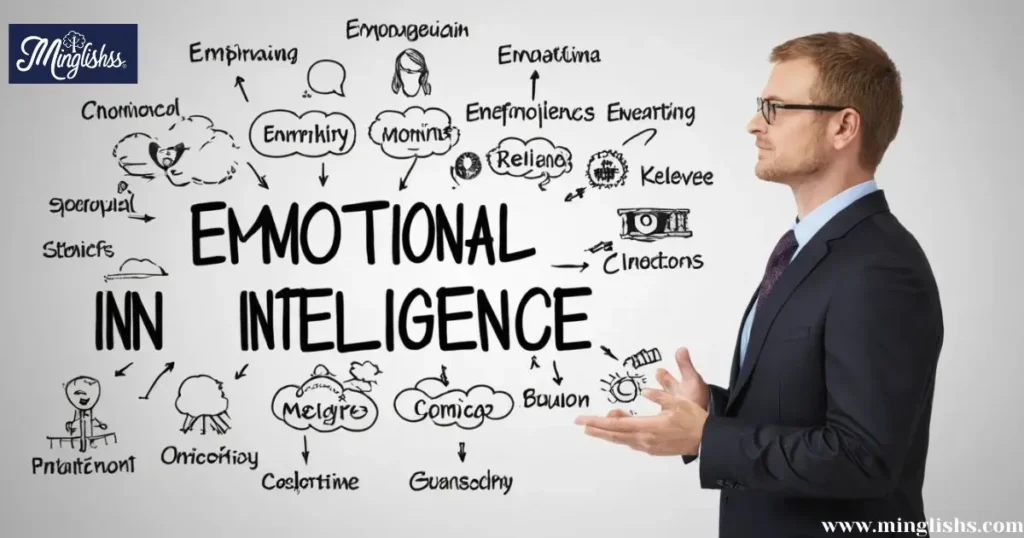“Communicating effectively can open doors that you never knew existed.”
When crafting a resume, it’s crucial to convey your strengths clearly and persuasively. One essential quality many employers seek is people skills the ability to communicate effectively, collaborate with others, and build strong relationships.
However, simply stating “people skills” may not effectively capture the depth of your capabilities. Instead, exploring alternative phrases and examples can demonstrate your interpersonal strengths more compellingly.
In this blog post, we’ll provide you with various ways to articulate your people skills, ensuring you stand out in the competitive job market. Whether you’re a recent graduate like Sarah looking for your first job or an experienced professional like Mike aiming for a leadership position, effectively showcasing your interpersonal abilities is key to attracting potential employers.
Additionally, we will discuss the importance of framing your experiences in a way that emphasizes your people skills. By using specific scenarios and language that resonate with hiring managers, you can effectively communicate your value and improve your chances of landing that desired position. So, let’s dive into 35 alternative ways to express “people skills” on your resume, along with actionable insights to enhance your job application.
Alternative Phrases for “People Skills”
1. Interpersonal Communication
Scenario: During a team project, you regularly update your colleagues on progress and actively listen to their feedback.

Subject Explanation: Effective interpersonal communication involves not only speaking clearly but also actively listening. This skill is essential in team settings where collaboration is key. By ensuring that everyone feels heard, you build a stronger, more cohesive team.
Additional Tip: Highlight instances where your communication led to successful project outcomes. For example, if your updates helped the team meet a deadline, mention that in your resume.
2. Emotional Intelligence
Scenario: You notice a colleague struggling with a personal issue and offer support, showing empathy and understanding.
Subject Explanation: Emotional intelligence is the ability to recognize and manage your emotions and those of others. Demonstrating empathy in the workplace fosters trust and respect among colleagues. This skill is especially important in leadership roles.
Additional Tip: Provide examples of how your emotional intelligence has helped resolve conflicts or improve team dynamics. This shows prospective employers that you can navigate sensitive situations effectively.

3. Team Collaboration
Scenario: In a brainstorming session, you encourage all team members to share their ideas, creating an inclusive environment.
Subject Explanation: Team collaboration involves working effectively with others to achieve common goals. Being a collaborative team member means valuing diverse perspectives and promoting a sense of belonging within the group.
Additional Tip: Mention specific projects where your collaborative approach led to innovative solutions or increased team morale. This will demonstrate your ability to enhance group performance.
4. Conflict Resolution
Scenario: When disagreements arise among team members, you facilitate discussions to reach a compromise.
Subject Explanation: Conflict resolution skills are crucial in maintaining a harmonious workplace. The ability to mediate disputes and find mutually beneficial solutions can prevent workplace tension and enhance productivity.
Additional Tip: Highlight a situation where you successfully resolved a conflict, detailing the steps you took and the positive outcome that followed.
5. Customer Service Skills
Scenario: You consistently receive positive feedback from clients due to your attentive and proactive service.
Subject Explanation: Strong customer service skills reflect your ability to understand and meet the needs of others. This is vital not only in customer-facing roles but also in internal team interactions.

Additional Tip: Include metrics or testimonials that demonstrate your customer service success. For instance, mention how your approach increased customer satisfaction ratings.
6. Negotiation Skills
Scenario: You successfully negotiate a project deadline with a client, balancing their needs with your team’s capacity.
Subject Explanation: Negotiation skills are essential for reaching agreements that satisfy all parties involved. This ability is particularly valuable in roles that require stakeholder management or contract negotiations.
Additional Tip: Describe a specific negotiation you handled and the strategies you used to achieve a win-win outcome.
7. Active Listening
Scenario: During meetings, you paraphrase what others have said to confirm understanding, fostering better communication.
Subject Explanation: Active listening is more than just hearing; it involves engaging with the speaker and responding thoughtfully. This skill enhances understanding and builds rapport with colleagues and clients alike.
Additional Tip: Emphasize instances where your active listening improved communication flow or led to innovative ideas.
Other Ways to Say “Time Frame”
8. Networking Ability
Scenario: You regularly attend industry events, establishing connections that lead to potential collaborations.
Subject Explanation: Networking involves building and maintaining professional relationships that can provide support, advice, and opportunities. It’s a critical skill for career advancement and business development.

Additional Tip: Mention any successful partnerships or opportunities that arose from your networking efforts to highlight your proactive approach.
9. Team Leadership
Scenario: You lead a project team, motivating members and providing guidance to achieve shared objectives.
Subject Explanation: Team leadership encompasses inspiring and guiding a group towards success. This requires a mix of people skills, including communication, empathy, and conflict management.
Additional Tip: Provide examples of how your leadership resulted in positive team outcomes, such as improved performance or high morale.
10. Cultural Awareness
Scenario: You adapt your communication style to accommodate team members from diverse cultural backgrounds.
Subject Explanation: Cultural awareness involves recognizing and respecting the differences in perspectives and practices among various cultures. This skill is increasingly important in today’s globalized work environment.
Additional Tip: Highlight experiences that showcase your ability to work effectively with diverse teams, emphasizing how this has contributed to project success.
11. Persuasion Skills
Scenario: You convince a hesitant client to proceed with a project by clearly outlining the benefits and addressing concerns.
Subject Explanation: Persuasion skills are essential for influencing others and gaining buy-in for your ideas. This ability can significantly impact sales, marketing, and leadership roles.

Additional Tip: Share specific instances where your persuasive communication led to successful outcomes, such as securing a contract or gaining team support for an initiative.
12. Adaptability
Scenario: You quickly adjust to changes in project direction and help your team navigate the transition smoothly.
Subject Explanation: Adaptability refers to your ability to adjust your approach and mindset in response to new situations. This skill is crucial in fast-paced environments where flexibility is required.
Additional Tip: Provide examples of how your adaptability has led to successful project completions despite unforeseen challenges.
13. Relationship Building
Scenario: You cultivate strong relationships with clients, leading to repeat business and referrals.
Subject Explanation: Relationship building involves creating and maintaining positive interactions with colleagues and clients. Strong relationships can enhance collaboration and lead to business growth.
Additional Tip: Highlight specific relationships that have contributed to your professional success, emphasizing the trust and rapport you established.
14. Positive Attitude
Scenario: You approach challenges with optimism, inspiring your colleagues to stay motivated during tough times.
Subject Explanation: A positive attitude can greatly influence team morale and productivity. By maintaining an upbeat outlook, you encourage others to do the same, fostering a supportive work environment.
Additional Tip: Share stories where your positivity had a tangible impact on your team’s performance or workplace atmosphere.
15. Influence
Scenario: You mentor junior staff, sharing your expertise to help them grow in their roles.
Subject Explanation: Influence is the ability to affect the decisions and behaviors of others. As a mentor, your guidance can significantly shape the careers of those you work with.
Additional Tip: Include details about mentoring relationships that resulted in career advancements for your mentees.
16. Feedback Facilitation
Scenario: You regularly seek and provide constructive feedback, contributing to a culture of continuous improvement.
Subject Explanation: The ability to give and receive feedback is vital for personal and professional growth. By facilitating open discussions, you help create an environment where everyone feels comfortable sharing.
Additional Tip: Illustrate how your feedback practices led to tangible improvements in team performance or individual development.
17. Collaboration Tools Proficiency
Scenario: You effectively use collaboration software to enhance team communication and project management.
Subject Explanation: Proficiency with collaboration tools is essential in today’s remote and hybrid work environments. This skill helps streamline workflows and ensures everyone stays informed.
Additional Tip: Mention specific tools you’ve mastered and how they’ve improved your team’s productivity.
18. Presentation Skills
Scenario: You deliver engaging presentations that effectively communicate complex information to your team.
Subject Explanation: Strong presentation skills are essential for sharing ideas and information clearly and persuasively. This ability can influence decision-making and enhance understanding among stakeholders.

Additional Tip: Provide examples of successful presentations you’ve delivered, highlighting their impact on project outcomes or team engagement.
19. Mentoring
Scenario: You take the initiative to guide new employees, helping them acclimate to the company culture.
Subject Explanation: Mentoring involves supporting and advising less experienced colleagues. This relationship not only fosters personal growth but also strengthens the team as a whole.
Additional Tip: Describe how your mentoring has positively impacted new hires, such as improving their confidence or performance.
20. Approachability
Scenario: Colleagues often seek you out for advice because they feel comfortable discussing their concerns with you.
Subject Explanation: Being approachable is about creating an environment where others feel safe to share their thoughts and feelings. This quality enhances team dynamics and encourages open communication.
Additional Tip: Highlight feedback from colleagues that illustrates your approachability and how it has fostered a supportive workplace culture.
21. Initiative
Scenario: You proactively identify areas for improvement within your team and suggest actionable solutions.
Subject Explanation: Taking the initiative demonstrates your commitment to enhancing team performance and contributing to organizational success. This quality shows employers that you are proactive and dedicated.
Additional Tip: Provide examples of initiatives you’ve led and the positive changes that resulted from your efforts.
22. Trustworthiness
Scenario: Colleagues rely on you to maintain confidentiality and uphold integrity in all dealings.
Subject Explanation: Trustworthiness is a cornerstone of effective teamwork and collaboration. Being reliable fosters a sense of security among team members and clients alike.

Additional Tip: Share testimonials or feedback that highlight your reputation for trustworthiness and the benefits it brings to your work environment.
23. Inclusivity
Scenario: You actively promote inclusive practices within your team, ensuring all voices are heard.
Subject Explanation: Inclusivity is about valuing diverse perspectives and ensuring everyone feels welcome and respected. This quality enhances creativity and innovation in team settings.
Additional Tip: Provide examples of initiatives you’ve implemented to foster inclusivity and the positive impact on team dynamics.
24. Decision-Making
Scenario: You facilitate team discussions to weigh options and reach consensus on important decisions.
Subject Explanation: Strong decision-making skills are vital for effective teamwork and project management. By involving team members in the process, you encourage collaboration and buy-in.

Additional Tip: Highlight instances where your decision-making led to successful project outcomes or improved team performance.
25. Initiative
Scenario: You volunteer for new projects, demonstrating your eagerness to take on challenges and help your team.
Subject Explanation: Taking initiative shows your willingness to step outside your comfort zone and contribute to the team’s success. This quality is highly valued by employers.
Additional Tip: Share stories of projects you’ve initiated and the positive impact they had on your team or organization.
26. Work Ethic
Scenario: You consistently meet deadlines and go above and beyond in your responsibilities.
Subject Explanation: A strong work ethic reflects your dedication and reliability as an employee. This quality builds trust with colleagues and supervisors, enhancing team dynamics.
Additional Tip: Provide examples of how your work ethic has led to successful outcomes or recognition in your role.
27. Open-Mindedness
Scenario: You embrace feedback and consider different perspectives when approaching challenges.
Subject Explanation: Open-mindedness fosters an environment of innovation and creativity. Being receptive to new ideas encourages collaboration and enhances problem-solving.
Additional Tip: Highlight how your open-mindedness has led to breakthroughs in team projects or improved processes.
28. Resourcefulness
Scenario: You find creative solutions to challenges, utilizing available resources effectively.
Subject Explanation: Resourcefulness involves thinking outside the box and making the most of what you have. This skill is essential in fast-paced environments where challenges arise unexpectedly.
Additional Tip: Provide examples of how your resourcefulness has led to successful outcomes in your projects.
29. Customer Relations
Scenario: You maintain strong relationships with clients, ensuring their needs are met and concerns are addressed promptly.
Subject Explanation: Strong customer relations skills are essential for fostering loyalty and satisfaction. This quality enhances both client and team interactions.
Additional Tip: Share testimonials or success stories that illustrate your effectiveness in managing customer relationships.
30. Coaching
Scenario: You help colleagues develop their skills through regular training sessions and constructive feedback.
Subject Explanation: Coaching is about supporting others in their professional development. This quality not only enhances individual performance but also strengthens the team.
Additional Tip: Highlight success stories of colleagues who have benefited from your coaching and how it contributed to their growth.
31. Community Engagement
Scenario: You participate in community service initiatives, representing your company positively.
Subject Explanation: Community engagement demonstrates your commitment to social responsibility. This quality reflects well on your employer and enhances team morale.
Additional Tip: Share details about your involvement in community initiatives and their impact on your organization’s reputation.
32. Social Perceptiveness
Scenario: You quickly pick up on team dynamics and adapt your approach to improve collaboration.
Subject Explanation: Social perceptiveness involves understanding the emotions and motivations of others. This skill enhances your ability to navigate complex interpersonal situations effectively.
Additional Tip: Provide examples of how your social perceptiveness has improved team interactions or resolved conflicts.
33. Crisis Management
Scenario: During a project setback, you lead your team in devising a recovery plan, keeping morale high.
Subject Explanation: Crisis management involves maintaining composure under pressure and guiding others through difficult situations. This skill is crucial for effective leadership.

Additional Tip: Share stories of how you’ve successfully managed crises, emphasizing the positive outcomes that resulted from your actions.
34. Problem-Solving
Scenario: You identify potential issues before they arise, implementing solutions that keep projects on track.
Subject Explanation: Strong problem-solving skills are vital for anticipating challenges and finding effective solutions. This quality enhances your value as a team member.
Additional Tip: Highlight specific instances where your problem-solving skills led to successful project outcomes.
35. Professional Networking
Scenario: You actively engage with industry professionals to share knowledge and resources.
Subject Explanation: Professional networking is essential for career growth and business development. Building a robust network can lead to new opportunities and collaborations.

Additional Tip: Provide examples of how your networking efforts have benefited your career or contributed to your organization’s success.
Pros and Cons of Alternative Phrases for “People Skills”
Pros:
- Clarity: Using specific phrases enhances understanding of your abilities.
- Tailored Messaging: Different phrases allow for customization based on the job description.
- Demonstrated Value: Showcasing skills through scenarios illustrates your capabilities effectively.
Cons:
- Overuse: Some phrases may become clichéd if not used thoughtfully.
- Misinterpretation: Not all readers may interpret terms in the same way.
- Potential Redundancy: Over-explaining skills could lead to a cluttered resume.
Conclusion:
In conclusion, effectively articulating your people skills on your resume is essential for standing out in today’s competitive job market. By utilizing alternative phrases and providing specific scenarios that showcase your interpersonal abilities, you can present a more compelling case to potential employers.
Remember, it’s not just about stating your skills but demonstrating how they’ve positively impacted your work and your team. Embrace these strategies to enhance your resume, increase your chances of securing interviews, and ultimately, land the job you desire
Answers to Key Question
1.What are “people skills,” and why are they important for my resume?
People skills, also known as interpersonal skills or soft skills, refer to the ability to effectively communicate, collaborate, and build relationships with others. They are important for your resume because employers value candidates who can work well in teams, navigate workplace dynamics, and interact positively with clients and colleagues. Highlighting these skills can set you apart from other candidates.
2.What are some alternative phrases I can use instead of “people skills” on my resume?
Instead of “people skills,” you can use phrases such as “interpersonal communication,” “relationship management,” “collaborative teamwork,” “emotional intelligence,” or “client relations.” These alternatives provide more specific insights into your abilities and can better resonate with potential employers.
3.How can I demonstrate my people skills effectively on my resume?
To effectively demonstrate your people skills on your resume, include specific examples or scenarios where you successfully utilized these skills. For instance, describe situations where you led a team, resolved conflicts, or enhanced customer satisfaction. Quantifying your achievements with metrics or outcomes can make your examples even more compelling.
4.Should I tailor my people skills section for different job applications?
Yes, tailoring your people skills section for different job applications is highly recommended. Review the job description and identify the specific interpersonal skills that are most relevant to the role. Customize your phrasing and examples to align with the employer’s needs, showcasing how your skills match their requirements.
5.Can I include people skills in my cover letter, too?
Absolutely! Including your people skills in your cover letter is a great way to complement your resume. Use the cover letter to expand on your interpersonal skills with specific anecdotes that illustrate how you’ve effectively worked with others in past roles. This approach provides a more personal touch and reinforces your suitability for the position.

Hi, I’m Isabel: I’m passionate about turning language learning into a fun adventure. I believe in making every word exciting and memorable.










